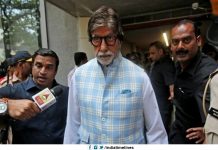
In a political landscape marked by shifting allegiances and strategic maneuvering, Indian politician Ashok Tanwar has once again captured public attention. Known for his frequent party switches, Tanwar made headlines in late 2024 when he campaigned for the Bharatiya Janata Party (BJP) in the afternoon and joined the Congress Party just a few hours later on the same day. This erratic behavior raises questions about the driving factors behind such moves, the implications for both parties, and the broader impact on Indian politics.
The Background of Ashok Tanwar
Ashok Tanwar, a political heavyweight from Haryana, started his political career with the Indian National Congress (INC). Rising through the ranks, he was seen as a young leader with promise, serving as the president of the Haryana Pradesh Congress Committee and a Member of Parliament. However, in recent years, his relationship with the Congress leadership deteriorated due to ideological differences and internal party disputes.
Disillusioned with the Congress, Tanwar made a high-profile exit in 2019. In the months that followed, he tried to carve out his political path by forming his own political outfit, Apna Bharat Morcha. However, the party struggled to gain significant traction in the highly competitive political environment of Haryana, where caste politics and party affiliations play a crucial role.
By 2021, Tanwar made a surprising move by aligning himself with the Bharatiya Janata Party (BJP), a direct competitor of the Congress and the ruling party in both the state of Haryana and at the national level. This was seen by many as an opportunistic maneuver, but Tanwar justified the switch by stating that the BJP’s development agenda aligned with his own vision for India. Since then, he has oscillated between different political factions, often causing confusion among his supporters and colleagues.
A Surprising Day of Dual Allegiances
On an autumn day in 2024, Ashok Tanwar once again found himself in the national spotlight. In the morning, he was seen campaigning for the BJP, delivering passionate speeches in support of the party’s candidates in Haryana’s local elections. Tanwar praised the BJP’s leadership, particularly Prime Minister Narendra Modi and Haryana Chief Minister Manohar Lal Khattar, for their governance and development initiatives in the state. He assured the crowd that the BJP was the best choice for Haryana’s future, emphasizing the party’s focus on economic growth, agricultural reforms, and infrastructure development.
Just a few hours later, the political scene took a dramatic turn. In the evening, Tanwar was photographed at a Congress rally, standing alongside senior Congress leaders and sharing the stage with Rahul Gandhi. Media outlets across the country were abuzz with the sudden shift. The question on everyone’s mind: how could Tanwar campaign for the BJP in the afternoon and join the Congress by night?
Reasons for the Stance Change
Tanwar’s actions have been attributed to several factors, including personal ambition, political pragmatism, and the volatile nature of Haryana’s political environment. However, the underlying motivations for this specific move remain speculative. Several key factors are worth exploring to understand why Ashok Tanwar may have shifted his stance in such a drastic and seemingly contradictory manner.
1. Discontent with BJP Leadership
Although Tanwar had aligned himself with the BJP in 2021, insiders report that his relationship with the party leadership had grown tense over time. Allegedly, Tanwar was dissatisfied with the BJP’s internal dynamics in Haryana, particularly regarding candidate selection for the local elections. He may have felt sidelined by the BJP’s state leadership, which remains largely dominated by Chief Minister Manohar Lal Khattar and his loyalists.
Tanwar’s disillusionment with the BJP could have prompted him to reconsider his options and reestablish ties with the Congress. Having felt marginalized in the BJP, Tanwar’s return to the Congress fold may have been driven by a desire for a more influential role in the state’s political landscape.
2. The Strategic Importance of Haryana
Haryana is a politically significant state with a history of fluctuating voter loyalties. As a state where both the BJP and Congress vie for dominance, Tanwar’s shifting allegiance could be seen as a strategic move aimed at consolidating power and influence in the region. By campaigning for the BJP in the afternoon and joining Congress later, Tanwar might be hedging his bets, seeking to maintain relationships with both political camps in case of future political developments.
Haryana’s political scenario is often influenced by caste dynamics, and Tanwar’s base of support comes primarily from the Dalit community. His switches may be part of a calculated effort to maximize his influence over Dalit voters and ensure that he remains a relevant political player, regardless of which party ultimately gains power in the state.
3. Personal Political Ambitions
Throughout his career, Ashok Tanwar has made no secret of his political ambitions. His move from the Congress to the BJP and back again could be seen as an effort to position himself as a kingmaker in Haryana politics. By maintaining ties with both the BJP and Congress, Tanwar can exert influence over both parties and secure a prominent role in the state’s future political developments.
Some analysts argue that Tanwar’s shift back to the Congress was motivated by the possibility of a key leadership position in the party, either at the state or national level. As the Congress continues to rebuild its organizational strength, Tanwar may see an opportunity to regain his standing within the party’s ranks, especially if he can deliver votes from his Dalit constituency.
4. Electoral Calculus
Ashok Tanwar’s political maneuvering could also be explained by electoral calculations. With state elections in Haryana on the horizon, Tanwar may have sensed a shift in the electorate’s mood. Opinion polls at the time indicated that the BJP’s popularity was waning, particularly in rural areas affected by economic challenges and agrarian distress. By aligning with Congress, Tanwar may have been attempting to position himself on the winning side of the upcoming elections.
Reactions from Political Leaders
Tanwar’s dramatic switch drew mixed reactions from political leaders across the spectrum. BJP leaders were quick to criticize him for what they described as “opportunism” and “political inconsistency.” Haryana Chief Minister Manohar Lal Khattar remarked that Tanwar’s behavior reflected a lack of commitment to any political ideology and was purely motivated by personal gain. BJP spokespersons echoed this sentiment, calling him a “political chameleon” who changes colors based on convenience.
On the other hand, Congress leaders appeared more welcoming of Tanwar’s return. Rahul Gandhi, who shared the stage with Tanwar during the Congress rally, issued a statement highlighting the need for unity among like-minded leaders to challenge the BJP’s dominance. He downplayed the controversy surrounding Tanwar’s earlier support for the BJP, emphasizing that Tanwar had always been a member of the Congress family and that his return was a sign of the party’s growing strength.
However, not all Congress leaders were enthusiastic. Some within the party were reportedly unhappy with Tanwar’s sudden return, arguing that it sent the wrong message to the public about the party’s commitment to ideological consistency. Senior Congress figures in Haryana expressed concerns that Tanwar’s return could create factionalism within the state unit, particularly among those who had opposed his leadership in the past.
Impact on Indian Politics
Ashok Tanwar’s political maneuvering reflects a broader trend in Indian politics, where party loyalty is often fluid, and individual ambition frequently trumps ideological commitments. In a political system dominated by coalition governments and regional parties, leaders like Tanwar are increasingly playing the role of kingmakers, switching allegiances based on political expediency rather than long-term party affiliation.
Tanwar’s actions also highlight the challenges faced by both the BJP and Congress in retaining their core leadership. For the BJP, the loss of a prominent Dalit leader like Tanwar underscores the difficulties the party faces in appealing to a broad cross-section of voters in states like Haryana, where caste dynamics remain crucial. For Congress, Tanwar’s return raises questions about the party’s ability to maintain internal discipline and avoid factionalism as it seeks to rebuild itself after years of electoral setbacks.
India Time LInes
Conclusion
Ashok Tanwar’s decision to campaign for the BJP in the afternoon and join Congress a few hours later has left many political observers baffled. However, his actions are emblematic of the complex and often contradictory nature of Indian politics. Whether driven by personal ambition, electoral calculations, or dissatisfaction with party leadership, Tanwar’s maneuvering underscores the fluidity of party allegiances in India’s political landscape. As both the BJP and Congress gear up for upcoming elections, Tanwar’s moves are likely to continue shaping the political discourse in Haryana and beyond.
This incident also serves as a reminder of the evolving nature of political loyalty in India, where the lines between parties are often blurred, and individual leaders can wield significant influence by positioning themselves as key players in a multipolar political system.


































As I website owner I believe the content material here is really excellent, appreciate it for your efforts.
Please let me know if you’re looking for a writer for your weblog. You have some really great articles and I think I would be a good asset. If you ever want to take some of the load off, I’d absolutely love to write some articles for your blog in exchange for a link back to mine. Please shoot me an e-mail if interested. Thanks!
Good write-up, I’m regular visitor of one’s site, maintain up the excellent operate, and It’s going to be a regular visitor for a lengthy time.
It?¦s actually a great and helpful piece of information. I?¦m glad that you simply shared this useful information with us. Please keep us up to date like this. Thanks for sharing.
Thanks for sharing superb informations. Your web site is so cool. I am impressed by the details that you’ve on this blog. It reveals how nicely you perceive this subject. Bookmarked this web page, will come back for more articles. You, my friend, ROCK! I found simply the information I already searched all over the place and simply could not come across. What a perfect web site.
Some really nice stuff on this internet site, I like it.
I would like to express my respect for your kindness in support of those people who need assistance with in this area of interest. Your personal commitment to getting the solution up and down was incredibly functional and have usually enabled men and women like me to reach their pursuits. Your new insightful instruction indicates a lot a person like me and further more to my office colleagues. Thanks a lot; from all of us.